


London 20:45 21:57 Manchester 21:01 22:20
Leeds 20:57 22:25
Liverpool 21:00 22:27
Birmingham 20:52 22:16
Antwerp 21:21 22:42
Bournemouth 20:44 22:04
Gateshead 21:03 22:35 Jerusalem 19:05 20:21







London 20:45 21:57 Manchester 21:01 22:20
Leeds 20:57 22:25
Liverpool 21:00 22:27
Birmingham 20:52 22:16
Antwerp 21:21 22:42
Bournemouth 20:44 22:04
Gateshead 21:03 22:35 Jerusalem 19:05 20:21



BY DAVID SAFFER
Israel’s Ministry of Foreign Affairs have rejected criticism by 29 Foreign Ministers, including UK’s David Lammy, regarding the flow of humanitarian aid to Gaza civilians and comments about ‘settlement activity’ in Judea and Samaria.
Accusations that Israel’s aid model is “dangerous, fuels instability and deprives Gazans of human dignity” has been dismissed outright.
The MFA said the statement benefited Hamas and diminished a hostage release deal as it “fails” to recognise Hamas’s role and responsibility.

“Hamas is the sole party responsible for the continuation of the war and the suffering on both sides,” noted the MFA.
Signatories drew the anger of Israel’s closest ally with US Ambassador to Israel Mike Huckerbee delivering a stark message,

posting: “Disgusting! 25 nations put pressure on Israel instead of savages of Hamas! Gaza suffers for 1 reason: Hamas rejects EVERY proposal. Blaming Israel is irrational.”
The ministers called for the Israeli government to immediately lift aid restrictions and slated proposals to remove Palestinians into
a ‘humanitarian city’.
“Permanent forced displacement is a violation of international humanitarian law,” they wrote. “We strongly oppose any steps towards territorial or demographic change in the Occupied Palestinian Territories.” Regarding 20 hostages, believed to still be alive, held captive by Hamas since 7 October 2023, signatories called for an immediate and unconditional release. “A negotiated ceasefire offers the best hope of bringing them home and ending the agony of their families,” they wrote, adding: “We are prepared to take further action to support an immediate ceasefire and a political pathway to security and peace for Israelis, Palestinians and the entire region.”



Continued on page 4














N O F L U F F . J U S T F A C T S .
Y o u r p r o p e r t y ’ s t r u e v a l u e . C a l l t o d a y f








Continued from Page 1
Lammy told Parliament there is no military solution.
“Negotiations will secure the hostages” he said. “Further bloodshed serves no purpose. Hamas and Israel must both commit to a ceasefire now, and the next ceasefire must be the last ceasefire.”
Lammy reaffirmed his commitment to a two-state solution then overviewed
government actions since taking office including restoring UNRWA funding, suspending arms licences and trade negotiations with Israel, and sanctions on far-right Israeli ministers and settlers
Steve Winston, National Jewish Assembly, and Jonathan Metliss, Action Against Discrimination, slated Lammy’s ‘one-sided” comments as Israel fights an existential war on seven fronts.
“Lammy condemned Israel and spoke
of the need to uphold the “human dignity” of Palestinians, yet made no mention of the dignity of the hostages still held by Hamas, nor of the Israeli men, women, and children brutally murdered on October 7,” he raged. “He also ignored Israel’s right to live in peace and security and failed to acknowledge the efforts by Israel and the US to deliver aid through the Gaza Humanitarian Fund.”
Winston added: “Most disturbingly,

Lammy said nothing of Hamas, a proscribed terrorist group that exploits its own civilians, obstructs humanitarian aid, and manipulates Western sentiment and media coverage for its own violent ends. His one-sided remarks raise serious concerns about the moral clarity and balance of the UK’s foreign policy stance.”
Metliss said Lammy was “true to form” with his anti-Israel rhetoric and threats.
“Lammy does not understand the situation in Gaza and is no a friend of the State of Israel,” he noted. “ He’s happy to jump on the anti-Israel bandwagon. The Government fails to understand that continuous anti-Israel bigotry fuels more antisemitic behaviour.”
Metliss added: “The support of the UK Jewish community, and some of its leaders, for Labour looks even more misguided and should be re-assessed. Keir Starmer and his colleagues in Labour are no friends of Israel. The next worrying step is the UK recognising the State of Palestine. Mistakenly, Starmer is under pressure from his Cabinet ministers to immediately do so.”
The signatories represented Australia, Austria, Belgium, Canada, Cyprus, Denmark, Estonia, Finland, France, Iceland, Ireland, Italy, Greece, Japan, Latvia, Lithuania, Luxembourg, Malta, The Netherlands, New Zealand, Norway, Poland, Portugal, Slovenia, Spain, Sweden, Switzerland and UK.
The EU Commissioner for Equality, Preparedness and Crisis Management Hadja Lahbib also backed the statement.

Spend your retirement doing what you love - not worrying about money


BY ADAM MOSES
Police arrested over 100 people protesting against the government proscribing Palestine Action as a terror group at rallies across the UK last Saturday.
Pro-Palestine demonstrations took place in London, Edinburgh, Manchester, Bristol and Truro.
There were 55 arrested in Parliament Square at the largest rally. Placards read: ‘I oppose genocide. I support Palestine Action’.
Pro-Israel counter protesters chanted “there is no genocide” at the demonstrators.
Steve Winston, National Jewish Assembly, said Palestine Action had shown “utter contempt for British law and values” after targeting businesses linked to Israel and defacing an RAF base.
“Its proscription as a terrorist group was entirely justified,” he said. “The arrests made this weekend, mostly for suspected support of this banned organisation, are both welcome and necessary. This isn’t protest, it’s criminality, and the CPS must now act decisively.”
Jonathan Metliss, Action Against Discrimination, said: “At long last the police appear to be fulfilling their responsibilities and duties. Palestinian Action is a proscribed organisation, supporters face consequential arrest. AAD hopes that this
trend will continue and see a dilution of the support from the heinous pro-Palestinian marches that have plagued our streets.”
The government proscribed the group earlier this month under Terrorism legislation.
In other incidents, Campaign Against Antisemitism has identified a man allegedly targeting a visibly Jewish man.
In footage, the alleged attacker appears to film himself stating, “Free Palestine”, at a Jewish man, who responded, “No picture,” before walking away. After publishing footage and offering a £5,000 reward for information leading to identification and conviction of the perpetrator, CAA was contacted by an individual identifying the perpetrator. CAA’s Online Monitoring and Investigations Unit has verified the information provided.


A CAA spokesperson said: “Chasing a Jew through London and shouting ‘Free Palestine’ is an act of brazen antisemitism. This is the true face of Palestine protesters. Some may see a Jewish person and think that, because they are Jewish, they are fair game to harass in the name of ‘freeing Palestine’. Others, clearly not fearing any repercussions, will actually act upon their demented impulse. Only 16% of British Jews are confident that if they reported an antisemitic crime, it would be prosecuted if there was strong enough evidence,
according to our representative polling. This is a chance for the authorities to change that. We will do everything we can to ensure that the perpetrator of this alleged attack is brought to justice. We cannot risk others becoming targets of this terrifying behaviour.”
CAA has also received footage of an attack on Jewish customers at a kosher
restaurant in central London.
And at the curtain call of Verdi’s Il Trovatore at the Royal Opera House in London, a member of the cast unfurled the flag of the Palestinian Authority onstage.
“It is so typical of the narcissism of some of the Palestine crowd that they hijack the last night of an enormously successful production at one of the world’s most famous opera houses and try to make it about their performative politics,” noted CAA. “Other members of the cast who had worked so hard must have wondered why people in the audience started to boo during their curtain call, as an incensed stage manager tried to grab the flag.”
The Royal Ballet and Opera has condemned the incident as “wholly inappropriate”.
“We completely agree,” noted CAA. “We understand that the performer was a freelancer and that this was their last night on stage. If that’s the case, good riddance. This isn’t about freeing Palestine. This is about an attention-seeker craving even more of the spotlight. Brits trying to enjoy an evening out shouldn’t have to worry about whether fanatics obsessed with the world’s only Jewish state may try to dominate the night.”


BY ADAM MOSES
Jewish organisations have called for the Labour Party to expel Diane Abbott for again claiming Jews do not experience the same kind of racism as black people.
The Hackney North and Stoke Newington MP has been suspended by the Labour Party pending an investigation into her comments on BBC Radio 4 last week.
The furore follows Abbott commenting on a letter in The Observer in 2023, which followed an article by Tomiwa Owolade that Irish, Jewish and Traveller people are among the most abused that resulted in a original suspension from the Party.
At the time Abbott suggested people of colour experience racism in a different way. She withdrew her comments and apologised. After a suspension, Abbott was re-admitted before last year’s general election.
Asked in an interview with the BBC’s James Naughtie if she looked back on the 2023 letter with regret, Abbott responded: “No, not at all.”
She explained: “Clearly, there must be a difference between racism, which is about colour and other types of racism because you can see a Traveller or a Jewish person walking down the street, you don’t know (their background). You don’t know unless you stop to speak to them or you’re in a meeting with them. But if you see a black person walking down the
street, you see straight away that they’re black. They are different types of racism.”
Of the suspension, Abbott told BBC Newsnight: “It is obvious this Labour leadership wants me out.”
A Campaign Against Antisemitism spokesperson questioned when Labour will “finally” show Abbott the door?
“It was ludicrous enough that she was readmitted to the Party after being suspended the first time for her shameful letter, but now that she has doubled down, Labour is out of excuses,” they noted. “If the Party fails to act, people like Ms Abbott will see this as a green light to spout their ignorant and insulting views about Jews and antisemitism.”
The spokesperson added: “Abbott has been suspended for doubling down on comments for which she was previously suspended. Does that make sense to anybody? Two yellow cards is a red in our book. Ms Abbott has obviously not learned a thing from her previous suspension. There is no reason to believe she will from this one. She must be expelled.”
“Abbott’s comments denying that Jews suffer racism are not just offensive. they are dangerous,” observed Gary Mond, National Jewish Assembly.
“Her 2023 apology now looks entirely insincere. Her latest remarks erase Jewish suffering while undermining Labour’s credibility on antisemitism. The Labour Party must show zero tolerance for this kind of rhetoric if it hopes to regain the
trust of the Jewish community.”
Jonathan Metliss, Action Against Discrimination, added: “Abbott should be expelled once and for all. There is no place in public life for this antisemitic behaviour and Abbott has consistent form in this area. AAD hopes this will result in her political obscurity.”
A Labour Party spokesman said: “There is no place for antisemitism in the Labour Party. We take these comments incredibly seriously, and will assess them in line with the Labour Party’s rules and procedures.”
CAA has submitted a complaint to the BBC for misleadingly misreporting the story before editing it and not apologising.
A spokesman noted: “The BBC has whitewashed her remarks, which is misleading reporting. We call, yet again, for Ms Abbott to be expelled from the Labour Party, and, yet again, for an independent investigation into the BBC and its coverage of matters of Jewish interest. It is interesting how both Labour and the BBC have struggled to get to grips with this same issue.”
Earlier this month, Jewish organisations
called on Prime Minister Keir Starmer to expel Abbott from the Party after claiming the ‘Jewish Defence Force’ is murdering Palestinians in Gaza.
Abbott was responding to a 2001 quote by journalist Chris Hedges alleging Israeli troops had “enticed children like mice into a trap and murdered them for sport”. Hedges’ comments have been dismissed by critics.
Abbott posted: “Beyond horrific that the Jewish Defence Force is gunning down Palestinians as they queue for food #GazaGenocide.”
The controversial MP has not clarified where her claim comes from, that it was from a quote over two decades ago or why she referred to the “Jewish Defence Force” not Israel Defence Force.




Escape this summer to the majestic Italian Alps and enjoy a luxurious stay at the brand-new V Retreats Cervino boutique hotel nestled at the foot of the breathtaking Matterhorn , near the Swiss border.
• Sumptuous Gourmet Me'hadrin Cuisine
• Complimentary lobby bar & wines
• Kashrut strict supervision of Rabbi Edrei, Kfar Maimon
• Beit Knesset on-site
• Spectacular mountain views - 60 elegant rooms
• Luxury spa & wellness center
• Free shuttle service to town
• Family-friendly summer activities
• Optional guided group tours
2 weakly sessions: Tuesday to Tuesday August 19 - September 2, 2025
From €5,500 per couple
Turin, Milan, Geneva
Charter flights available from TLV
Book your unforgettable Summer Alpine escape today!
BY DAVID SAFFER
Miraculous stories have emerged from the recent Iranian ballistic missile attack in Be’er Sheva.
Rabbi Yossi and Shoshi Litzman direct Chabad-Lubavitch in Soroka where Soroka Hospital serves around one million people.
The Litzmans, together with emissaries Rabbi Shmulik and Nechama Friman, regularly visit the hospital and continue to offer support since Soroka suffered a direct hit.
“We don’t have a bomb shelter in our home,” Shoshi reportedly told Chabad. “We had to get all of our children out of the house and across the street to the public bomb shelter fast. We arrived right in time to hear a very loud explosion. We knew that something nearby was hit.”
When Home Front Command announced it was safe to leave the shelter, Rabbi Litzman rushed to the hospital.
The missile struck the operation theatre building where patients were unable to evacuate when missile alerts sounded. The hospital had been evacuating patients to older buildings ward by ward. Other patients were discharged.
“If the missile had hit 10 hours earlier, we could have had a massive casualty event,” Litzman recalled. “It would have been unimaginable horror. And if it landed just a few feet in the other direction,
it would have hit a building where new mothers are in labour where most didn’t manage to reach a shelter in time.”
Litzman met patients and staff who spoke of miracles.
“Every person had a story, how they managed to get to shelter just in time, or how their room got sprayed with shrapnel, but they were left unharmed,” he said. “They felt G-d with them.”
“The faith amongst everyone I spoke to was powerful, a true testament to our people,” Litzman added.
Most patients have been transferred to other hospitals to continue treatment.
Despite the destruction and shock, the mood is optimistic in Soroka.
Litzman noted: “The Rebbe, Rabbi Menachem M. Schneerson, told us over and over again, this is the land upon which G-d places his eyes ‘from the beginning of the year to the end of the year.’ Day and night, with no rest. We’ve grown used to miracles here. We are alive because G-d is closely guarding us, we will thrive tomorrow, because G-d is leading us into miraculous times.”
hit classrooms and play areas but no one was miraculously hurt.
Founded in 1788 by the Alter Rebbe, Rabbi Schneur Zalman of Liadi, the facility is part of the Ohr Chaya and Larisa Blavatnik chain of 18 centers for underprivileged families operated by Chabad
Chabad, in cooperation with the Israeli government, identified 3,000 displaced families in Ramat Gan, Bat Yam, Tel Aviv and Rishon Letzion. Rather than providing emergency meals, Chabad distributed relief cards to purchase food, clothing and basic necessities.

Leah Blau, who directs the Be’er Sheva centre, said daycare has always been a place of “warmth, safety and continuity” for children and parents.
“To see it torn apart by an act of war was devastating,” she said. “No one was injured, but our work must continue, rebuilding not just walls, but a sense of security for our children.”
According to the IDF, cluster bombs struck Chabad’s daycare center, Tchelet Mordechai Campus, in Be’er Sheva which

across Israel.
Chabad’s infrastructure has been invaluable during the Iran and Gaza conflict. Soup kitchens were temporarily closed with Iran missile bombardment due to security but Chabad expanded its meal delivery services, particularly to elderly residents afraid to leave bomb shelters.
Chabad is securing alternate premises to ensure uninterrupted care once security conditions permit.
“This daycare will be repaired and reopened as soon as it is safe,” said Rabbi Sholom Duchman, director Chabad. “This building will once again be filled with laughter, learning and the strength it provides to families in Be’er Sheva. It is our sacred duty and we will not falter.”










Please note: The views of the letters do not necessarily reflect the views of this newspaper. Letters may be edited and publication is at the discretion of the editor.
Dear Editor,
A fortnight ago, I explained in a letter to this newspaper about how the principle behind deciding to proscribe Palestine Action as terrorists was correct, even if many practical question marks would arise out of its implementation.
Yet in the two weeks since that letter, we have seen various supporters of Palestine Action fall, knowingly, straight into the trap of committing a criminal offence under the Terrorism Act 2000, by expressing support of a proscribed terrorist organisation while protesting its proscription (two very different things).
One of the core questions I raised in that letter was how you deal with supporters of Palestine Action - who no doubt exist in their thousands and
support its activities as much as those of the many other (non-terrorist) pro-Palestinian protest groups in the UK. Proscription would simply risk turning them towards another group who, under a different name - say, ‘Action for Palestine’ - carry out the same actions but haven’t yet been proscribed. In other words, proscription risked creating one big game of whack a mole which our Labour administration had not properly appreciated. Perhaps the Government will have thought this the most desirable consequence, out of all that could have arisen. Far better to have all these people turn to the next best alternative than to arrest all of them, given the acute issues of resourcing in the police, the dire strait of our criminal courts (those four Palestine Action members who infiltrated RAF Brize Norton may not now stand trial until January 2027), and the chronic
• Tax-efficient investing before and after Aliyah
• Tax-efficient income after 10-year tax-free period
• Receive your entire pension pot tax-free
• Specialist portfolio management for Olim
• No Inheritance Tax (for non-UK-situated assets)
We are seasoned experts in providing long-term financial planning advice for those making Aliyah. Scan the QR code to read more
With investing, your capital is at risk. Tax treatments are subject to individual circumstances and are subject to change.
overcrowding in our prisons. If that was the Government’s prediction, it has not come to pass, because, with hindsight, it seems the one thing we could not account for was the abject stupidity of the protesters. Instead of taking their loyalties elsewhere and into the embrace of many other allied groups who have marched on our streets over the past 20 months, these activists have, mind-bogglingly, decided to stay *loyal*. Out came the white placards, with a slogan that has now become a trade mark for Palestine Action fans over the past few weeks: “I Oppose Genocide. I Support Palestine Action”. The support for a proscribed terrorist group literally could not have been made clearer. With no room for ambiguity or spin in those last four words whatsoever, huge numbers of arrests of these placard-bearers were made, including octogenarians. They barely gave police a decision to make. This woeful idiocy was entirely preventable. All the activists needed to do was write only the first three words on the placard, and they would have been fine. Even going for oblique statements like “I Oppose Genocide. Reverse the Ban”, or “I Oppose Genocide. That Doesn’t Make Me a Terrorist”, would have worked. Think of how many other ways you could express your opposition to “genocide” without supporting a newly-proscribed terrorist group.
No. It was somehow strictly necessary for the activists to put out this specific slogan, a portmanteau of two completely
irreconcilable statements, just to be able to support the same group, under the same name. For them, it seemed too morally impure to ask that they accept the most basic logical proposition: that “opposing genocide” does not lead necessarily and inexorably to supporting a terrorist group targeting their own country’s military infrastructure and Jewish-owned businesses.
This is the world we now find ourselves living in. One where, for far too many people, including an MP in our own Parliament, opposition to “Israel’s genocide” has left all logical bounds and become a quasi-religion, demanding undiluted loyalty even to groups who stray beyond the ordinary criminal law. Such is the fanaticism that has prevailed over even basic levels of rationality in so many parts of our country.
You may fault our Government for going too far by proscribing Palestine Action, or praise the decision as justified despite the raft of entirely predictable practical issues it is now causing. But nobody could seriously have thought those arrested in its aftermath would be so unequivocally clear, and exhibit such weapons-grade imbecility, in continuing to support the same terrorist group. And that development should lead us to be just as concerned as if our Government had never taken this step in the first place.
Naji Tilley, London NW4


Abie Dayan, the founder and CEO of Platinum Realtors in Jerusalem, has become one of the most respected and dynamic figures in Israel’s high-end real estate market. Born and raised in Brooklyn, New York, Abie made the move to Israel over 15 years ago and quickly established himself as a trailblazer in the industry, bringing with him
not only American business values and service standards but also a deep passion for Jerusalem’s unique urban landscape. Under his leadership, Platinum Realtors has grown into a premier boutique agency specializing in luxury residential developments and prime investment opportunities. What sets Abie apart is not only his encyclopedic knowledge of the Jerusalem market or his involvement in major projects such as Kramim in Kiryat Moshe, but also his unwavering commitment to the client experience.

Unlike many in the real estate sector who move on after a sale is closed, Abie has built an entire customer care department dedicated to supporting buyers even after they receive the keys to their new home. From assisting with final inspections to offering post-move-in support and community integration, Abie ensures every client is guided through each step of the transition—not just the transaction. This philosophy has earned him a sterling reputation among buyers from Israel, the United States, the UK, France, and beyond, many of whom come to him through word-of-mouth recommendations.
In response to the increasingly difficult climate for Jews in the UK and growing interest in Aliyah, Abie has
launched a dedicated UK Desk within Platinum Realtors. Importantly, the UK Desk is run by English professionals who understand the unique needs and sensitivities of British clients. Likewise, the US Desk is staffed by Americans, and the French Desk by French nationals—ensuring that every client receives tailored, culturally fluent service from people who speak their language and truly understand where they’re coming from. These specialized teams offer personalized guidance and seamless support throughout the purchasing and Aliyah process, giving prospective buyers peace of mind and a sense of continuity from their home countries to Jerusalem.
As a frequent commentator on real estate policy and urban growth, Abie has also spoken out on national platforms about the need for stronger ethical standards and regulatory reform in the Israeli real estate industry, advocating for greater transparency and professional accountability. He regularly appears
on ILTV News and is active on LinkedIn, Facebook, and other platforms, where he shares insights on market trends, new developments, and the changing face of Jerusalem. Combining a global perspective with a deeply rooted local presence, Abie Dayan has redefined what it means to be a real estate professional in Israel, offering not just properties—but peace of mind, trust, and long-term relationships to every client he serves. Prices staring at 2,300,000 ILS
For more information, call Platinum Real Estate +972-2-500-0259 or email office@platinumr.co.il


The Rabbinic Training Academy is delighted to announce the graduation of Cohort Hey (5th) and Vav (6th) comprising eight Rabbis and Rebetzen couples.
The Rabbinic Training Academy is a 12-month course for newly qualified rabbinic couples and religious community leaders, in order to mentor them through their first rabbinic positions. The Academy is, at its essence, about creating a genuine paradigm shift in how our rabbis lead their communities.
The course aims to point future rabbinic leadership teams towards being open-minded and human, humble and caring and to be truly sensitive on how to provide spiritual guidance and support in an ever changing and complex world. The goal is that their leadership will contribute towards a healthier Jewish community and, ultimately, a better world.
Topics covered included (but are not limited to) Practical Rabbinics, Professional Development, Current Issues, Politics, Different Cultures, History, Economics and Finance, Personal Challenges, Wellbeing, Modes of Therapy, and Outreach.
The graduates are enjoying success in a variety of rabbinic and leadership roles. These include United Synagogue pulpits in Hadley Wood, Woodside Park, Northwood & Ruislip, Chigwell & Hainault, and Richmond, as well as other communities in Catford and Bromley, Borehamwood, Loughton, Epping Forest and most recently the appointment of its graduate as Chief Rabbi of the Republic of Ireland
in Dublin.
The graduation event, took place on Wednesday 9th July at Chabad of Hampstead Garden Suburb consisted of a speech by Chair of Trustees Mrs Esther Marlow, the certificate distribution ceremony was presented by Rabbi Chaim Rapoport and closing remarks given by Rabbi Shaul Rosenblatt, founder and CEO of the RTA. Speeches were also made by graduates Rabbis Chaim Hoch, Yossi Glass and Akiva Rosen and Rebetzen Judy Devorkin.
‘This has been a wonderful cohort. We have learnt together. We have grown together. We have laughed together. We have cried together. It has been, at the same time, a busy and intense year – but also a relaxed and peaceful year. As the group has settled down, so has the feeling in the room. I have seen our discussions develop over the last twelve months and the conversation has become richer and deeper. Credit to all of you rabbis and rebbetzens for that. You have come as students – ready to learn and grow. Ready to listen. Ready to put aside egos and opinions and look for truth instead.’Rabbi Shaul Rosenblatt, CEO.
‘I’ve gained so much from the RTA this year! The programme has empowered me to think independently and grow both in my Rabbinic training and in my understanding of the world around me.’Rabbi Gedalia Hertz, Principal of Yeshiva Gedola Lubavitch London and Beth Hamedrash
Cockfosters and North Southgate United Synagogue has launched an exciting new initiative in partnership with PaL - Phone and Learn bringing accessible, flexible Torah learning to the heart of their community.
The programme matches Southgate members with dedicated PaL tutors. Over a three-week period each month, participants learn together remotely—via phone
shared their experiences and enjoyed the opportunity to strengthen both their learning and personal connections.
One of the Southgate participants, Anthony, addressed the group briefly during the event. He reflected on the Torah insights he’s gained while learning with his PaL tutor, Dovid Yaakov, and spoke of the positive impact the experience has had on his Jewish learning journey.

or online—at times that suit their schedules. On the fourth week, all participants gather at the shul in Southgate for an uplifting in-person learning session.
Last week marked the first in-person gathering of the programme, with a warm and vibrant atmosphere as learners met face-to-face for the first time. Participants
Rabbi Meir Schindler, Rabbi of Southgate United Synagogue, praised the initiative, saying, “This partnership with PaL is a wonderful opportunity for our members to connect with Torah learning in a personal and practical way. The blend of convenience and community is what makes it so powerful.”
As the programme continues to grow, Southgate United Synagogue and PaL are keen to welcome more participants from the surrounding North London area, and also more tutors, into this rewarding initiative. If you would like to join, please sign up at www.phoneandlearn.org or email info@phoneandlearn.org
Dan Accadia Resort, overlooking the beautiful Herzliya Beach, is launching a new era of hospitality.
The Chalet Wing has undergone a complete upgrade and renovation at an investment of approximately NIS 75 million. This includes the upgrade of 90 garden and terrace rooms, as well as five unique suites, with the aim of offering an exclusive and exceptional hospitality experience.
The Accadia became a part of the Dan Hotels Corporation in 1956 and has
provided guests with an international standard of luxury, throughout the decades. Many visitors of the Dan Accadia are returning guests from Britain, France, Switzerland, and the USA. Younger guests are well provided for with Danyland, the children’s club offering a wide range of activities and games, run by professional counselors.
This project is a tribute to the work of the late architect Heinz (Haim) Fenchel, who designed the original Chalet buildings in the 1960s. The renovated spaces

combine architectural tradition with modern design and luxurious raw materials, creating a unique blend of past and present.
These inspirations are also reflected in the interior design, which is precise down to the last detail: an illustrated ceiling in all garden rooms, the use of luxurious marble, original textiles, furniture details carefully collected from all over the world - among them original works of art, including works by Ohad Maromi and Gal Weinstein - and items designed and manufactured especially for Dan Accadia, such as the unique mattresses specially developed with a double cushion to provide comfort that does not fall short of the design standard.
The new bathrooms were designed to provide the same regal experience while getting ready for dinner or a relaxing bath at the end of the day, featuring a dressing area, a walk-in shower with a comfortable bench, a luxurious bathtub, and two sinks.
Some of the Garden Chalet rooms also feature a private outdoor bathtub, offering guests a relaxing outdoor experience. The revolutionary design allows the bathrooms to ‘open up’ to the room space, utilizing the smart glass in the wide window to facilitate a seamless
transition between complete privacy and an unobstructed view.
Soon, the lobby, reception areas, and VIP lounge will be renovated, and a mini shop will be added for guests’ convenience. Landscape designer Kfir Fisher will also redesign the garden spaces, feature new paths made of imported natural stone, spectacular Mediterranean vegetation, and a harmonious atmosphere.
Shlomi Tahan, CEO of Dan Hotels commented: “We are proud and excited to launch these extensive renovations at Dan Accadia Resort. They were carried out with the aim of continuing to establish its place as the leading destination in Israel for a luxurious and quiet vacation with the deep understanding that quality and service at the highest levels are not a display - they are an experience, a state of mind.”
This one-off project was carried out under the leadership of Roni Federman - the chain’s architect, Esti Robinson - Deputy Head of the Department, Tzachi Dubeks - Project Manager and the Technical Department team.
Dan Accadia, the resort reimagined, continues to offer an exceptional vacation destination in Israel, providing a luxurious and enjoyable stay where true style is not a display - it is a state of mind.
On 8th July, a heartfelt Siyum Mishnayos was held at the Borehamwood Kollel to mark the Shloshim of Harav Yechezkel (Alan) Plancey zt”l.
The event, organised under the leadership of Rosh Kollel Harav Lieberman shlit”a, was a deeply moving tribute to a beloved figure who left an indelible impact on the community and beyond.
The proceedings began with Mincha, led by R’ Nussi Plancey, son of the niftar.
This was followed by a communal seder limud alongside the avreichim of the Kollel, all dedicated l’ilui nishmas Harav Plancey zt”l.
Harav Lieberman opened the siyum, warmly welcoming the Plancey family and guests. He spoke of the deep and
enduring connection Rabbi Plancey z’l had with the Borehamwood Kollel and its mission.
A powerful and eloquent address was then delivered by R’ Nussi Feiner, a sonin-law of Harav Plancey zt”l, who reflected on his father-in-law’s early years, his Torah journey under the guidance of gedolim, and the establishment of his Shul and kehilla in Borehamwood. His words were enriched with divrei Chazal, pesukim and gemoro quotations, illuminating Rabbi Plancey’s multifaceted Torah path and enduring legacy.
Rabbi Alex Chapper shlit”a, Rov of Borehamwood Shul, spoke warmly and movingly, highlighting Rabbi Plancey’s central role in founding the Borehamwood community, establishing its first mikvah, and setting up learning programmes that raised the level of Torah observance in the area.
The Siyum Mishnayos was concluded by another son-in-law, R’ Jan Gutterman, and Kaddish was recited by R’ Nussi Plancey.
The evening concluded with a L’chaim shared among the Kollel members, avreichim, and wider kehilla, all gathered to honour the memory of a man who built and inspired a generation.
On Sunday, 50 energetic young professionals took part in the first ever Chai Young Professionals 5km Run Club, organised by the newly-formed Chai Young Professionals Committee. The event brought a vibrant buzz to Hendon, as participants laced up their trainers and hit the pavement for Chai.
After the run, participants gathered at Chai’s flagship centre to relax, socialise and enjoy well-earned refreshments.
The morning also featured a raffle with fantastic prizes, including a £100 voucher from Flowers by Miri (@flowersbymiri), three guest passes to David Lloyd Finchley (worth £270) and a delicious meal for four courtesy of Kosher Deli (@ kosherdeli_uk).
The event raised over £2,254, all of which will go directly towards supporting Chai’s crucial services.
We’re grateful to our sponsors, ace lifestyle and JDR
Properties Group for their generous support and to everyone who made this event such a resounding success.
Natasha Seitler, Chair of the Chai Young Professionals Committee, said: “We are thrilled with the turnout and the energy on the day. It’s been amazing to see so many young professionals come together for such an important cause. This is just the beginning. we can’t wait to share what’s next!”
This inspiring run was the first event organised by the Chai Young Professionals Committee and certainly not the lastwatch this space for more exciting events to come!
To get the best value from your private medical insurance, you should speak to an expert who is qualified to advise you on the right policy for you, and recommend the providers who offer the most competitive premiums. This advice covers individual, family and company policies, and is always FREE.
As an independent health insurance expert, I work with the healthcare insurers to provide you with the appropriate and most affordable level of cover. So whether you have an existing policy or not, let’s have a chat.



Jewish Women’s Aid (JWA) has launched a new CPD-accredited training programme for senior youth movement leaders and professional staff, equipping them with the tools to foster a culture of consent, healthy relationships, and safeguarding ahead of summer camps this summer.
This half-day (2.5 hour) programme takes a preventative approach, supporting senior leaders in youth movements to reflect on their culture, policies and practices. It helps them identify how to prevent harmful behaviours on camp and promote healthy relationships and consent, building on what is already working and exploring areas for development.
With thousands of Jewish teenagers taking part in overnight camps and
away from home.
The programme, which is focussed on prevention and proactive support, has recently been delivered to youth leaders –including those working movements Bnei Akiva, FZY and RSY – with more expected to take part.
Jamie Smokler, 22, who is leading FZY Israel tour as a madrich, says: “What I noticed most from leading previous camps, was this really strong culture around being away from home with your age group. There’s a big focus on forming relationships. A lot of them wanted to find a girlfriend or boyfriend, or at the very least have a kiss on the last night of camp.”
trips abroad with youth movements this summer, the programme offers a timely intervention. The launch comes amid growing parental concerns fuelled by media headlines about young people navigating relationships and boundaries
He adds: “Especially in Israel, where you’re mixing with groups from other countries – you’ve got Israeli, American, and Australian teens around the same age. That just adds to the excitement. It’s almost like throwing them into a kind of Love Island scenario, where everyone’s looking for someone and it ends up creating drama and problems. I don’t think they watch shows or scroll through social media and say ‘I want to be like that,’ but the influence is there. You hear the teenagers using phrases you’d only get on shows like Love Island – things like ‘going for a chat,’ which has a totally different meaning now. When I was their
age and on tour, no one said that. It was just, ‘Should we go talk?’ or ‘Can I speak to you for a minute?’ But now that kind of TV language has crept in subconsciously and is shaping how they behave.”
Smokler, who is starting a doctorate at Glasgow Caledonian University in September, says of the JWA course: “Some kids, especially a few of the quieter ones, found it really easy to open up to me. I think that comes down to the kind of leader you are and the environment you create from the start. A lot of the questions were about the legal side of things - stuff they just hadn’t been taught. They didn’t know what was legal or not when it came to relationships or even social interaction. That’s why having proper support and training for madrichim is so important; it gives us the tools to respond to those moments in a safe, informed way.”
Madeleine Teper, a 20-year-old madricha currently leading FZY Israel tour, took part in the JWA course. A Birmingham University Psychology student, who has previously led other camps, she says: “I think COVID has really affected how teenagers interact with each other. Some are really confident forming relationships and speaking to people, while others have barely spoken to the opposite sex. That gap feels even wider since the pandemic. “At that age, they’re in such a vulnerable place. They’re going through so many changes, moving from being children to becoming teenagers, starting to figure out their independence.”
She adds: “Programmes like the one run by JWA are essential. They help us build safe, supportive relationships with
young people and make sure we know how to handle situations if they arise.”
Michal Benjamin, Bnei Akiva’s Mazkira (National Director), says: “The CPD training delivered by JWA was incredibly valuable and has meaningfully enriched our professional development this year. It enabled us to further strengthen and refine our machane (camp) materials, helping us build on our existing safeguarding practices to ensure an even more enjoyable and inclusive summer for all.”
Programme co-author Ilana Hutchinson, JWA’s Director of Outreach and Prevention, says: “This is a brand new training programme designed specifically for senior leaders in youth movements. While we’ve been delivering pre-camp training for madrichim for many years, this reflective approach gives senior leaders the time and tools to look closely at their movement’s culture and make meaningful change. Already, some movements have told us they’ve made practical changes as a result. This training empowers senior leaders to take action and embed a culture of consent across their programmes, while giving youth leaders the tools to support young people in building healthy relationships at a pivotal point in their development.”
She adds: “With CPD accreditation now in place, it’s more important than ever that youth movements take up this opportunity. Equipping leaders with the skills and confidence to build safer, more supportive spaces is vital to promoting healthy relationships and preventing harm.”

The London School of Jewish Studies recently held its annual graduation ceremony and celebrated with graduates from their teacher training and degree programmes who proudly received their certificates from Chief Rabbi Sir Mirvis KBE.
The event took place at Hampstead Garden Suburb Synagogue with graduates and their families with two MA graduates travelling from as far as South Africa to join the ceremony.
Chief Rabbi Sir Ephraim Mirvis KBE, President of LSJS addressed the graduates saying they have achieved so much more as a result of their engagement with LSJS. “We learn in order to teach, and I congratulate you and everything you will achieve in your careers, as you go into schools and transform the lives of future adults at this challenging time.”
Guest speaker Sarah Sultman MBE spoke about her son’s journey which led her to found Gesher school for children aged four to 16 with a range of mild to moderate special educational needs. “Our tradition elevates the role of a teacher to something divine; not just a conveyor of information but a shaper of destiny. Our modern world celebrates influences and entrepreneurs, but it is teachers who deserve our deepest kavod. LSJS embodies the idea that we should be lifelong
learners. How we can do more to inspire others, especially our next generation, is a question we must ask ourselves.”
Dr Helena Miller, Director of Degrees and Teacher Training Progammes, Senior Research Fellow commented that she was “so proud of the BA graduates and proud to have been part of their journeys.”
The graduates were delighted to celebrate their achievements with their friends and family, as well as to have the opportunity to thank their teachers.
“LSJS doesn’t just train teachers – it cultivates thinkers, nurtures leaders, and dares us to believe that our classroom can change the world,” said School Direct Secondary graduate Alexandra Bouaziz.
“Teaching isn’t just about covering the curriculum – it’s about uncovering each child’s potential. LSJS has helped us find our voice as educators.”
“We are so appreciative of all the time invested in us, making your sessions so engaging and shaping us into the teachers we are now and the ones we’ll continue to be,” said School Direct Primary graduate Mohamed Osman. “Thank you to everyone at LSJS for running such an amazing pathway into teaching.”
“Watching our students graduate is the highlight of my year. Great education never stops as we keep learning and being students. You all inspire us and
will be great role models as you shape the future of the next generation,” said LSJS Chief Executive Joanne Greenaway. “I would like to give a very special tribute to Dr Helena Miller. Her leadership over the past seven years has been exceptional and she will be greatly missed from the teacher training and undergraduate programmes, although we are very pleased that she will continue to run our MA and developing PhD programmes.”
LSJS offers a range of routes to gaining qualified teacher status (QTS), from School Direct (Primary and Secondary),
School-Centred Initial Teacher Training (SCITT) and Assessment Only. As well as teacher training, LSJS provides BA (Hons) and MA in Jewish Education, validated by Middlesex University, which are accessible to students around the world. Applications are open for students to start a part-time BA (Hons) Jewish Education this September and a MA starting in January.
For more information on teacher training or degrees at LSJS please visit ww.lsjs. ac.uk or call 020 8203 6427.





I am a independent broker acting solely on your behalf
• I sell through many different auction houses, high-end dealers, collectors and private clients
• Having been in business for over 10 years looking after many, many clients you will always receive my personal discreet one-to-one service (references available)
• There is no cost or obligation meeting with me at your home or storage facility
• Probate valuations carried out
• Based in St Johns Wood, clients in the UK and Europe



To mark the Shloishim of the petirah of both Rabbi Alan Plancey z’l and Rebbetzen Miriam Plancey (née Hirsch) o’h, Borehamwood & Elstree Synagogue –Croxdale Road hosted an emotional and inspiring Evening of Tribute on Monday, 14th July 2025.
The evening began with Mincha led by Rabbi Plancey’s son, R’ Nussi Plancey, followed by Tehillim and a daily halacha
son, R’ Meir Plancey.
Rabbi Chapper shlit’a opened the formal proceedings by welcoming the many dignitaries, family members, close friends, and Shul attendees who had gathered. He offered a warm d’var Torah, weaving together words of hakoras hatov and personal memories of Rabbi Plancey, who was instrumental in establishing not only the Shul but much of the Jewish infrastructure and spiritual life in Borehamwood and its surrounding areas.
delivered by the Shul’s Rov, Rabbi Alex Chapper. Maariv was then led by another
Chief Rabbi Sir Ephraim Yitzchak Mirvis KBE then addressed the gathering with heartfelt words. He spoke of Rabbi Plancey not only as a pioneering community leader but as the quintessential “Rabbi’s Rabbi”—a source of wisdom, guidance, and support to many Rabbonim across the UK.
He also shared his deep admiration for Rebbetzen Plancey, whose eishes chayil
presence complemented and strengthened her husband’s communal mission.
The Mayor of Hertfordshire, Cllr Alpha Bird Collins, offered his own reflections, highlighting Rabbi Plancey’s civic contributions during his time as a County Councillor, his two terms as Mayor of Hertsmere, and his later honour as Alderman of the County.
Lord Stuart Polak CBE gave a moving tribute, drawing on a longstanding personal friendship with the Plancey family. He spoke with warmth and humour, recalling treasured memories - including Friday night minyonim held in the Plancey family home on Anthony Road, which he fondly described as being part of a “very special club.”
Two lifelong friends, Dianne Stein and Susie Winters, shared heartfelt recollections from their youth, when Rabbi Plancey served as Youth Minister at Hampstead Garden Suburb Synagogue (Norrice Lea). They reflected on the rare authenticity and approachability of both Rabbi and Rebbetzen Plancey, whose unique warmth drew countless young people - and their families - closer to Yiddishkeit.
Danny Newman, a neighbour and
close family friend for many decades, followed with a personal reflection on the deep bonds between his family and the Planceys - spanning generations and rooted in mutual respect and affection.
The final speaker of the evening was R’ Meir Plancey, who delivered a deeply moving, and at times humorous, address. He painted a vivid picture of growing up in Borehamwood with his siblings - Susy, Nechama, and Nussi - and described the tireless and devoted efforts of his parents, whose 24/7 commitment to their kehilla left an indelible mark on countless lives. His remarks brought many to tears - and then to laughter - leaving attendees with a profound sense of pride and gratitude for having known Rabbi Alan and Rebbetzen Miriam Plancey z’l.
The Askarah was read by Shul Rov, Rabbi Chapper, and the event was concluded by Mr Josh Moont, Shul Chairman, who shared his own reflections, extended heartfelt thanks to all the speakers, and offered words of brocha to the family and community.
May the memory of Rabbi Alan and Rebbetzen Miriam Plancey z’l be a mailitz yosher for their family, friends, community, and all of Klal Yisroel.

• Suits all half price
• Sports jackets all half price
• Polo shirts £15 each 2 for £20
• Summer casual Jackets from £29.50
• Trousers £20 each 2 pairs £35 up to 50 inch waist
• Shirts £15 each and 2 for £25


SUNDAY 3RD AUGUST 2025
JROOTS BRINGS YOU TWO MUST-SEE HOLOCAUST DOCUMENTARIES
FREE IN-PERSON SCREENINGS IN LONDON (FROM 6.15PM) & MANCHESTER FOR TIMINGS & TO BOOK, EMAIL OFFICE@KEHALYEDIDIM.ORG
STREAM ONLINE AT JROOTS.ORG/FILMS
FROM NAMELESS NUMBER TO NATION’S PRIDE
MANFRED GOLDBERG MBE’S INCREDIBLE STORY OF SURVIVAL, RESILIENCE AND QUIET HEROISM
JROOTS.ORG/FILMS
Parental discretion advised


THE REMARKABLE HOLOCAUST SURVIVOR AND NAZI-HUNTER WHO CAUGHT THE BUTCHER OF PLASZOW
Dear Rabbi
There’s been a lot of noise this week about something James O’Brien said on LBC. I heard he read out a message that many are calling deeply antisemitic, but he later apologised and said he didn’t realise how serious it was at the time. Some people are calling it a mistake, others say it’s part of a bigger problem in the media. What’s your take? Was it actually antisemitic? And is this really such a big deal?
Ricky
Dear Ricky Oh, it’s a big deal because it was a very old lie wrapped in a very modern platform. For the benefit of those who don’t know:
On his LBC show, James O’Brien read out a message from a listener claiming that his Jewish wife was taught at “Shabbat school” that “one Jewish life is worth thousands of Arab lives” and that “Arabs are cockroaches to be crushed.” Chilling words - and utterly, unequivocally false.
Let’s be fair, I don’t know James O’Brien’s heart (even as I’ve shared TV platforms with him in the past). But I do know the microphone is mightier than the sword, and when wielded carelessly, it can do just as much damage.
O’Brien didn’t invent the lie. But he amplified it on national radio, without questioning it. That’s not just a misstep - it’s a moral failure. When someone reads out a message saying Jews teach their children that Arabs are “cockroaches to be crushed,” and doesn’t immediately challenge or condemn it, we’re not talking about nuance. We’re talking about negligence.
O’Brien is known for grilling politicians and calling out misinformation - but this time, he dropped the ball. Instead of questioning a blatantly inflammatory
claim, he let it air unchallenged. Jewish organisations have called it out for what it is: reckless journalism that risks fuelling antisemitic hatred at a time when tensions are already dangerously high.
He later apologised. But apologies don’t erase consequences. And in a climate where Jews are being attacked, vilified, and demonised on a daily basis, broadcasting a story like this (without fact-checking, without context, without challenge) is the media equivalent of lighting a match in a gas leak.
Here’s the uncomfortable truth: antisemitism doesn’t always come wearing swastikas. Sometimes it comes dressed as “balanced discussion.” Sometimes it sounds like “just reading a message.” Sometimes it hides behind the mask of “objectivity.”

The end result is the same. A poisonous lie spreads. Hatred festers. And Jewish schoolkids require added protection in their schools and beyond because someone somewhere said we teach hate. Personally, I think he ought to resign. Why you wonder? Because antisemitism doesn’t always shout in the streets, sometimes it whispers on respectable airwaves. Today’s hate often comes
camouflaged as commentary. That’s what makes it so insidious - and so dangerous. We must be alert to it and there must be consequences for those who espouse it, however supposedly, naively. Intent matters. But impact matters more. And when the microphone is yours, so is the responsibility.














A free valuation from our in house gemmologist and gold experts on anything you may wish to sell. If you are thinking of selling, we purchase all Diamonds in any shape, size, clarity or colour. WE PAY MORE than all our competitors. Try us, and you will not be disappointed!



Specialising in investments & tax planning for families and businesses for over 25 years.
• Strategies to mitigate IHT on primary residence
• Investments which you can keep in your name, yet swiftly ring-fence from IHT
• IHT efficient investments when acting for parents through a Power of Attorney
• Strategies to mitigate IHT on property companies & other assets
• Tax-Efficient Dividend Extraction Strategies
• Low-risk vehicles for surplus company cash with minimal corporation tax liability
• Pensions to reduce your corporation tax bill
• Shareholder Protection for Business Partners




BY RABBI NAFTALI SCHIFF
This week, I want to talk about a critical core value- BitachonTrust in Hashem. Not the theoretical kind. Not the kind we repeat like a mantra to impress others or just when things go our way. But the kind that sits inside us like bedrock, that anchors us through uncertainty, that shows up in our hardest moments, and defines who we are in tough times too, when everything else is stripped away.
Bitachon isn’t the same as Emunah. Emunah is belief or faith. The conviction that there’s a Creator, an all-knowing, all-powerful, all-present Divine Being, the Kol Yachol, who sustains the world. But Bitachon is what that belief looks like when it’s challenged, when it’s lived, when it’s breathed. When it informs how we wake up, how we carry ourselves, how we respond to crisis, how we raise our children and speak to our students and co workers and sit with our pain and work through our nisyonos.
Bitachon is the lived experience of knowing Hashem is in control and relinquishing to Him. It’s living with the reality that even when we don’t understand the plan, we’re still held in it and by it.
There’s a line in Pirkei Avot that’s always struck me as deceptively simple and of huge potency.
Make His will your will- so that He will make your will His.
It’s not a trade. It’s a perspective shift. Bitachon means aligning your will with Hashem’s. Trusting not just that He’s in charge, but that His plan is better than yours, it’s The Plan- even when it hurts. Even when it confuses. Even when it breaks your heart. Even at times, when no one else around you agrees.
Avraham Avinu lived this. He was told “Lech Lecha”- go. Leave everything behind. Where to? No answer beyond “to the land I will show to you.” Just go. Into the unknown. Into uncertainty. And he went. Because he trusted. That’s the beginning of our story as a Peoplen without an army or a land or a miracle, but with a man who trusted the relationship enough to move forward, eyes open, without knowing where it would lead. That’s the continuation of our story after the Exodus from Egypt when once again we followed
the Almighty into the desert, without certainty of where or how we were headed. That’s the level of trust to which Yirmiyahu refers as the nostalgic courtship between Hashem and the Jewish People. The depth of love we invoke at the height of the Rosh Hashanah service.
That’s Bitachon.
I’ve seen Bitachon in places that perhaps even defy logic.
The Gemara in Berachot that says:
Even if a sharp sword is placed upon one’s neck- do not withhold yourself from mercy.
didn’t take his Bitachon. His whole being was fixed on something far deeper.
What does it mean to trust in the face of that?
It means Bitachon is not about having a good day and feeling spiritual. It’s about something more rooted, more raw. It’s about holding on to Hashem at all times, even and especially when there’s nothing else to hold on to. And if they could do that then and there, how could we not at least try?
Bitachon doesn’t mean you understand everything. It doesn’t mean everything goes your way. It means you live with the quiet confidence and inner calm that

It’s a powerful image. But I heard it come to life in the most holy of places: from the mouths of numerous Holocaust survivors I’ve met.
Pearl Benish ה״ע was forced on a Death March from Auschwitz, feet bloodied, body frail, dignity stripped, hope stretched thin. And yet she repeated that line to me as taught to her by the famed Sarah Shenirer. That even in the most unimaginable situation, mercy shall come. That Bitachon must remain.
Hershl Hershkovik י״נ was herded naked into a gas chamber on Simchas Torah 1944. Not figuratively. Literally. And even there, with death imminent, with no possible way out, he lived that line. He repeatedly recited that Gemara to those around him. That even if the sword is on your neck- you do not give up hope. You do not give up on Hashem.
Chaim Swimmer, who was beside him, told me how Hershl didn’t flinch in his faith. Not even then. The gas chamber
there’s a greater Will at play. And that Will is good. And loving. And deeply aware of you, even when it feels hidden. What kind of inner world does it take to stand there and still live with Bitachon? It humbles me. It silences me.
And it calls to us.
Because if they could carry Bitachon in those places- surely we can carry it in ours.
We’re not in Auschwitz. But we are in times of war. We are in a world that feels more precarious than ever. Israel is bleeding. The diaspora is anxious. There is pain, loss, and uncertainty everywhere. And yet, we’re being called to trust. Not because it all makes sense. But because we believe that Someone is writing the story. And we are characters in a plot that runs deeper than any headline or algorithm can grasp.
Bitachon means walking into that uncertainty not with fear-but with calm. It means saying: I will do everything in my
power, but I know that the power is not mine. It never was.
As I was leaving Yerushayim to work for Aish in London over 25 years ago, Rav Noach Weinberg zt”l gave me just one unequivocal piece of advice- to review the seven levels of Sha’ar HaBitachon of the Chovos HaLevavos ten times a day. He knew the enormity of the challenge we faced in inspiring young disinterested Jews in addition to raising the funds to do so. He clearly felt that Bitachon was key and that it needs truly to sink in, to become second nature and instinct.
Here they are:
1. Hashem created me out of love.
2. He has infinite power.
3. He has already given me more than I could ever imagine.
4. He knows what’s truly best for me.
5. Nothing else has power-only Him. 6. He knows every detail of my life and every need I have.
7. He keeps giving, even when I fall short.
He would remind us that Hashem wants His children home. Make your will His will and live by it- for real! If you do- you cannot fail! Living with Bitachon is a source of peace, calmness, non panic and equanimity. Bitachon is the reason that people who have nothing else- no home, no answers, no clarity- can still radiate calm.
I saw it again and again in post-October 7th Israel. Soldiers on the frontlines, parents in mourning, young people rallying with a strength that can’t be explained. There’s a clarity that emerges in chaos- when everything else falls away and you’re left only with what’s real. For so many, Bitachon isn’t just theory or theology. It’s the air Jews breath.
At Jewish Futures, this is what we try to live and to share- not just through words but by lived example. Bitachon isn’t just for the Beit Midrash. It’s for how we lead, how we plan, how we live. We encourage our students not just to know G-d exists, but to trust Him. Deeply. Personally. Practically.
There’s a reason that trust exercises are so powerful in leadership and team building. You allow yourself to fall backwards. Eyes closed. Arms open. And you trust someone to catch you. I often imagine Bitachon is that-but off the edge of Niagara Falls. And the one catching you isn’t human. It’s Hashem. Not because you’ve earned it. But because you’re His, because He has a plan and because you’re in it and you,ve chosen to be part of it.
Continued on page 26

BY YEHUDA DAVIS
In a world where life is filtered through screens and connections are measured in likes, many people are craving something deeper. Despite being constantly “online”, loneliness is rising, anxiety is growing, and too often there is no space to meaningfully come together in real life.
The Hub, run by Jewish Futures in Hendon, offers a response to this modern
condition. At first glance, it is a busy building with a constant flow of people coming and going. But look closer, and you’ll see something more profound: a place where Jews of all ages and backgrounds can find a multitude of opportunities to connect – with each other, with Jewish life, and with themselves.
Each week, hundreds walk through its doors for reasons as varied as the Jewish community itself. In one room, GIFT volunteers pack food parcels for families who are struggling, or cook meals for the homeless. Here, kindness isn’t
Continued from page 24
When we were married in Yerushalayim, the verse we chose to guide us was from Yirmiyahu 2:2:
“I remember the kindness of your youth, the love of your bridal days—how you followed Me into the desert, into a land not sown.”
That’s how our people began- with trust. We followed Hashem into the desert. No map. No strategy. Just trust. And that’s what love really is. Not just shared goals or mutual affection-but trust. When a person says, “I’m with you. I don’t know where we’re going. But I trust you.” That’s real love.
Bitachon is an act of love.
And that trust doesn’t end with Hashem. It extends to people. Because if we really believe that every person is created b’tzelem Elokim, then we have to trust that spark in others. Even those we disagree with. Especially those we’ve been taught to fear or write off.
And especially now, during the Three Weeks, we would do well to remember
that disunity and distrust have always been our undoing. Bitachon means remembering that we’re part of one story, one people, one plan.
At Jewish Futures, we’re not interested in pretty ideas that sound good on paper. We’re trying to raise a generation who can live this. Who can stand firm, calm, faithful-not because they’re naive, but because they’re deeply connected. Who can weather the storm and still say: Hashem, I trust You.
Bitachon doesn’t mean we stop trying. It means we try without the anxiety of thinking it all depends on us. It means effort with serenity. Action without panic.
This is why Bitachon is not just a personal value. It’s a national one. It’s what will rebuild us. What will heal us. What will carry us forward.
So this week, take a breath.
Take a step back from the chaos. From the newsfeeds. From the noise.
And ask yourself:
Do I trust?
Do I live with the calm of someone who knows they’re not alone?
Can I let go, even just a little, of the need to control?
Can I believe that there’s a plan- even
theoretical; it is practical, purposeful, and rooted in care for the wider world.
Elsewhere, Year 6 students gather for a graduation dinner, marking milestones in kindness and compassion. On another floor, over 140 young professionals meet for Aish’s increasingly popular pre-Shabbat chills, deep conversations, educational series and Friday Night Dinners.
Some come to learn. Chazon runs middos workshops and experiential sessions including tefillin-making sessions, while Eleicha fills the space with musical Hallels, shiurim and one to one chavrusah learning. Each pathway offers something different: socialising, intellectual challenge, spiritual growth, Jewish reflection, or simply a safe place to ask questions without judgement.
Others come for community. Kehal Yedidim offers daily minyanim and Shabbat tefillot, with kiddushim that extend prayer into conversation – moments to share, to check in, and to feel part of a vibrant group. Festivals are marked with immersive experiences, while Tisha B’Av commemorations and dedicating a new Sefer Torah anchor people in collective memory and joy.
For many, connection comes through remembering the past. Down the hall, JRoots uses cutting-edge VR and films produced by the media team - like Manfred MBE and The Survivor’s Revenge to tell powerful stories of the Holocaust in
when I don’t see it?
Can I trust enough to love-deeply, fullyHashem and others- even when I don’t always understand?
Because that’s what it takes. That’s what living with Bitachon means.
And that’s the Yerushalayim we’re here to build.


ways that invite reflection on resilience, moral courage, and responsibility today.
In the evenings, FJL brings people together for lively Friday night dinners and thought-provoking educational events that cut across backgrounds and perspectives. And each week, The Hub opens its rooms to Beis programmes, bar mitzvahs, engagement parties, and communal gatherings that strengthen social bonds.
It is easy to think that one offering can reach everyone. The Hub recognises the opposite: different Jews need different ways to connect – with giving, with education, with prayer, with memory, with music, with food, with friendship, or simply with each other.
Jewish Futures’ Hub, home to ten organisations including Aish UK, GIFT, JRoots, FJL, Chazon, Eleicha, and Ta’amim, shows that while technology accelerates and individual achievement is celebrated, it is human connection that gives life meaning.
The world will continue to change rapidly. But the need for places like The Hub – where every person can find their own pathway to Jewish life, the Jewish story and community is timeless.
///What3Words is a geocoding system that has divided the world into a grid of 57 trillion 3-by-3 squares, each of which is identified by a unique three-word address. In this column, Rabbi Naftali Schiff reflects upon three words each week, relating to core issues of the day. Feedback welcome! nschiff@jfutures.org
Rabbi Naftali Schiff is the Founder and Chief Executive of Jewish Futures



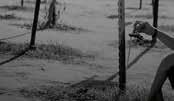















For hundreds of young British Jews interrailing through Europe post A-levels this summer, Budapest wasn’t just another stop on the map – it was a chance to pause and experience a meaningful shabbat.
Over 400 school leavers from 18 different schools across the UK converged in the Hungarian capital last weekend for what is fast becoming a rite of passage: Aish UK’s Interrailing Shabbat of Jewish Connection.
Now in its third year, the initiative has grown exponentially. From 150 students at its launch in 2022 to 180 last year, this summer’s gathering saw numbers more than double – all through word of mouth. It’s possibly the largest gathering of one year of Jews over the last 80 years.
The formula is simple but powerful. As students travel through Europe to celebrate the end of school, Aish UK

offers them a chance to come together and experience a wonderful Shabbat where they can connect, chill and meet other students ahead of beginning their university lives.
“It’s amazing to see that the Aish Budapest Interrailing Shabbat has now become the place to be for Jewish students,” said Rabbi Rafi Stemmer, Head of Aish UK’s Schools Department and originator of the Budapest Shabbat experience. “It was filled with warmth, connection and inspiration for all, and it’s incredible to be a part of it.”
The weekend began on Friday afternoon with a walking tour of Jewish Budapest led by Rabbi Zvi Gefen, Director of Aish Manchester. The students explored the city’s rich Jewish heritage, learning about figures such as Hannah Szenes, the young poet and resistance fighter who became a national hero for her courage in WWII.
As dusk fell, the courtyard of the iconic Kazinczy Synagogue complex buzzed with hundreds of students reuniting with old friends and meeting new ones. Soon, the crowds poured into the historic shul for Kabbalat Shabbat. There was singing, dancing and prayer – a palpable energy of unity, transcending levels of observance and affiliation.
“The strength of the Jewish people

that empowered heroes like Hannah Szenes to stand strong, that empowered Jews to climb out of the Danube river, empowers us to continue post October 7th,” Rabbi Gideon Goldwater, Managing Director of Aish UK & Jewish Futures, told the students. “To build, to grow and to connect with each other and fulfil the mission of the Jewish people.”
Friday night meals were held in seven different locations across the complex, grouped by the cities and universities students will soon call home. For many, it was the first opportunity to meet others heading to the same campus in September – and to meet the Aish campus directors and families who will become a ‘home away from home.’
The night continued with singing, stories and snacks before students drifted back to their hostels in the early hours, energised rather than exhausted.
On Shabbat morning, they davened together and enjoyed a traditional Hungarian kiddush, before another walking tour attracted 60 students eager to learn more. Lunch drew 140 students, who gathered to eat, sing and share ideas, followed by an intimate shabbat evening meal with 100 students and a musical Havdalah led by Rabbi Stemmer, closing out a shabbat that left hearts full and spirits lifted.
“The atmosphere was amazing, everyone felt so connected,” said Ariella, a
Yavneh alumnus, now heading to Leeds university.
“We are so thankful to Aish for organising such a wonderful weekend for us.”
But perhaps the most remarkable aspect is how this gathering was built from nothing. There was no established tradition, no decades-old programme to slot into. Just three years ago, it was an idea – an experiment to see if students would pause their travels to gather for Shabbat. Today, it has become a milestone event that marks the end of school and the beginning of young adult Jewish life for hundreds each year.
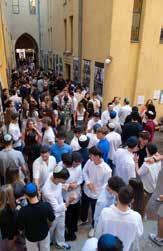
With Aish UK campus regional directors there to greet, guide, and get to know the students before university starts, this rite of passage is not just a weekend experience. It is the first step into a vibrant Jewish life and friendships waiting for them when they return home to study.
In a time when Jewish heritage in Europe walks the fine line between memory and revival, few cities offer as compelling a city break as Budapest. It’s a city where the past whispers from ornate synagogues and the aroma of kosher goulash drifts down narrow, cobbled streets. For Jewish travelers seeking a short getaway that doesn’t compromise on heritage, halachic standards, or heart-stirring history, Budapest is an unmissable gem.
Budapest was once home to one of Europe’s largest Jewish communities. Decimated by the Holocaust and suppressed during Communist rule, Jewish life here is not just preserved — it’s alive. Walk through the city’s historic Jewish Quarter (District VII) and you’ll feel it: the rhythm of daily minyanim, the buzz of Hebrew chatter from tourists and yeshiva students alike, and the clinking of coffee cups in kosher cafés.
The epicentre is Dohány Street Synagogue, the largest synagogue in Europe.
The adjacent Jewish Museum offers a powerful narrative of Hungarian Jewry’s rich traditions and tragic losses. Don’t miss the Raoul Wallenberg Memorial Park, where the weeping willow sculpture bears the names of Holocaust victims on its metal leaves.
City breaks often mean culinary compromises for observant travelers — but not in Budapest. The city’s Jewish Quarter boasts a small yet satisfying array of
kosher restaurants. Kosher Deli will allow you to organise your Shabbat supplies. Spending Shabbat in Budapest is both spiritually fulfilling and logistically manageable. With multiple synagogues — from the ornate Kazinczy Street Orthodox Synagogue to Chabad’s growing network — you’re never far from a minyan. Many Jewish-friendly hotels in the area are accustomed to accommodating observant guests, with physical keys, stair access, and understanding of late checkouts post-Havdalah.
No Jewish visit to Budapest is complete without a moment of reflection at the “Shoes on the Danube” memorial. It’s a haunting installation of iron shoes on the riverbank, marking where the Arrow Cross executed Jews during the Holocaust. Nearby plaques bear silent witness in Hungarian, English, and Hebrew. Yet even amid these heavy memories, the city doesn’t just remember its Jews - it welcomes them back.
If you are seeking more than just a break - a reconnection with roots, community, and with continuity - Budapest is more than a destination.
To find out how JRoots can help you plan a meaningful and educational Jewish journey to Budapest, please be in touch – info@jroots.org











BY RABBI JONATHAN TAWIL
“These are the journeys of Bnei Yisrael, who went forth from the land of Egypt.” (33:1)
We must keep on going forward - not lingering in the past. While we must never forget the past, it is incumbent upon us to look forward to the future. We have left Egypt; the pain, persecution and travail are behind us. We go forward towards new horizons. When we live in the past, we become depressed and stagnant. The Lomza Rosh Hayeshivah, Horav Yechiel Mordechai Gordon, zl, would walk through the streets of Petach Tikvah with an air of nobility and dignity which bespoke a person who seemed not to have a care in the world. He spoke and acted with serenity and refinement. There were only a few very close talmidim, students, and friends who knew how deeply troubled and anguished Rav Yechiel Mordechai really was. He had lost two wives, and two of his sons had been killed.
Thousands of his students had perished in the fires of the Holocaust, and his precious yeshivah was destroyed by the Nazis. His face never evinced his pain; his mouth never uttered a depressed word. He consoled others, giving them hope amid their pain. He always kept on going forward. He left Egypt/the decimation of European Jewry. He was rebuilding a Torah renaissance in Eretz Yisrael.
grief. As the funeral proceeded from the Lomza Yeshivah, the Rosh HaYeshivah suddenly began to cry uncontrollably with bitter sobs. They could not stop him. A Rav who was with him asked, “What is wrong?” Rav Yechiel Mordechai answered, “It is a terrible tragedy for a young person to be taken so suddenly in the prime of his life. Yet, there is some form of consolation in the fact that he merits a funeral and burial in Kever Yisrael, Jewish cemetery. I, regrettably, did not merit to accompany my sons to their burial.”
How did the Rosh Hayeshivah do it?
How was he able to suppress his emotions and control his feelings of pain and grief? What gave him the strength and fortitude

to maintain his composure despite his overwhelming grief? He did not look back. He looked toward tomorrow and the hope of the geulah, redemption, that accompanies it.
He shall dwell in it until the death of the Kohen Gadol. (35:25)
Their shoes were shining brightly; their uniforms were in perfect condition. They stood erect and marched in perfect cadence. They succeeded in impressing the Kaiser. As a show of gratitude, the Kaiser announced that he would grant each soldier one wish. One “astute” soldier jumped forward and declared that he had a favor to request of the Kaiser. “What would you like?” asked the Kaiser.
“My request is that the Kaiser grant me my daily meals,” the soldier responded.
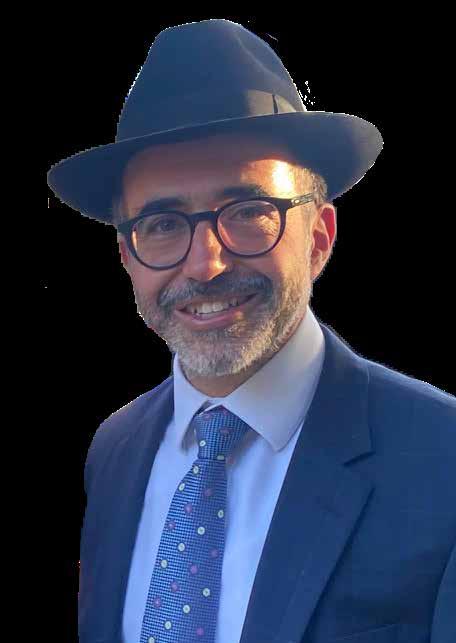
The other soldiers were shocked at his request. Is this what you bother the Kaiser about? It goes without saying that a soldier in the Kaiser’s army who performs his duties as ordered will certainly be fed three meals a day. Even his uniform is provided by the Kaiser. Once one is a soldier, his needs are addressed because he serves the king. The “brilliant” soldier should have had the common sense to ask for something special, something unique and out of the ordinary, something that he would not receive anyway. The mere fact that he wasted such an incredible opportunity is in itself the greatest loss. He could no longer have his request granted by the king.
Once, he gave into his emotions. It was a slip - a painful reference to his overwhelming losses. It happened that a survivor, an ember spared from the fires of the Holocaust, came to bemoan his fate and seek a blessing from the Rosh Hayeshivah. He had a son that had for a number of years been of marriageable age and was not succeeding in finding his barshert, designated mate. The father wept over the past, bemoaned the present, and feared what the future would bring. How does one console such a broken-hearted Jew? Rav Yechiel Mordechai shared his personal grief with him. He told him about his losses, the wonderful sons, the brilliant and precious students that he no longer had. Together, they wept - for one another and for themselves.
Another time, as he attended the funeral of a brilliant, budding Torah scholar, a student of Slabodka Yeshivah who had drowned in a lake near Tel Aviv, Rav Yechiel Mordechai also revealed his pent-up
What connection is there between the unintentional murderer and the Kohen Gadol? Rashi explains that the Kohen Gadol should have prayed to Hashem that such a tragedy in which one Jew kills another Jew, albeit unintentionally, does not occur during his tenure as Kohen Gadol. It is interesting how the Torah emphasizes that davening is not enough. One must know what to daven for. The Kohen Gadol should have prayed for the spiritual welfare of the people of his generation. Had he done so, the tragedy that occurred would have been circumvented. The Chafetz Chaim, zl, draws a powerful analogy to demonstrate this idea.
The Kaiser decided one day to visit one of his infantry battalions. The soldiers all lined up at attention to present themselves before their commander-in-chief.
The Chafetz Chaim explains that this same idea applies to our daily Tefillos, prayers. Let us face it: What do we really
daven for? We pray for material sustenance, material success - everything to enhance our material and physical status. Do we ever ask for Divine Assistance in performing teshuvah, repentance, or success in Torah study and yiraas Shomayim, fear of Heaven? Do we shed tears for our spiritual dimension, or are we so preoccupied with the mundane, the physical, the material components in our lives to focus on what is really important? Are we different from the “foolish” soldier who asked for the food he would receive anyway as long as he served with dignity and fidelity? Should we not understand that our prayers should focus on our spiritual health and our ability to serve Hashem properly and to carry out His mitzvos correctly? Is there any doubt that if we perform properly in the spiritual arena that Hashem will provide our material needs? I guess for some people that is not enough.










D u p l e x P e n t h o u s e
F u l l y r e n o v a t e d
1 2 9 S Q M
2 0 S Q M b a l c o n i e s
6 0 S Q M r o o f
Asking Price: ₪ 3 . 5 M / £ 7 7 0 K

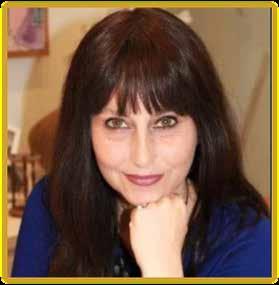
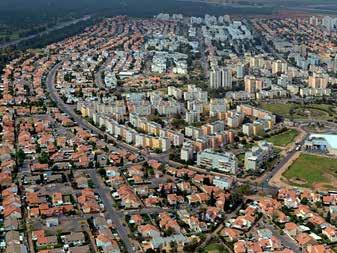
2 0 0 S Q M b u i l t 4 B e d r o o m s 2 . 5 b a t h r o o m s I n - g r
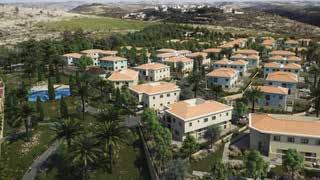


S h e i n f e l d
S e m i - a t t a c h e d h o m e
5 B e d r o o m s H u g e g a r d e n O n e o f a k i n d

Asking Price:
Asking Price: ₪ 5 . 7 M / £ 1 . 2 6 M



This week we have not one but two parshiot! Double the fun and we’re done with Bamidbar and gearing up for Devarim next week.
You know how we were going to leave Midyan alone? And then they sent Balak, the evil sorcerer/prophet and then sent some naughty girls to cause a plague that killed 24,000? Well, Hashem wants 1000 men from each shevet, tzadikim, to go to war with Midyan. But when they are finished, Moshe will die. Klal Yisrael love their leader and can’t bear the thought of losing him. Not one person steps forward and Moshe must pick lots. Moshe puts Pinchas in charge and off they set. Old, righteous, bookworm types, 12,000 versus the entire, trained army of Midyan and Billam. No contest, who’s in charge? Hashem. What are you stressing for. We win big time. We
take down all the Midyaniit men and the five Kings of Midian as well as Bilam. Not a single Jewish soldier dies!!
There is a lot of spoils and Hashem commands that the animals are shared equally with the people who stayed behind. All the gold and silver and jewels go to the commanders who give it all away to the Mishkan. Holy people, remember? Then we got the kitchen stuff. The pots and pans need toveling. Whenever you buy something from a goy, if it’s for food you need to dip it in a mikvah and make a blessing to sanctify it so it’s kosher.
Since we conquered Sichon and Og, we get to divide up the land. The shevatim of Reuven, Gad and half of Menashe want to stay there for the grazing and not go into Eretz Yisrael proper. Moshe tells them off for this, they value their money more than
Eretz Yisrael, and from what they said to him, more than their children. In a small way because these people were really righteous, but Moshe was a great man and called them out on it. Will you sit back and let your brothers do all the fighting? They promise to help fight the wars before coming back home. That ends Matot, now for Masei. Hashem list out all the places we stopped and tells us the borders for Eretz Yisrael and where each shevet will live. A city of refuge was a Levite city that someone who killed another person by accident could run to. The closest relative of the victim had the right to kill him if he didn’t go or if he left. Hashem only makes bad things happen through bad people, so if Bill was involved in an accident that killed Bob, Bill wasn’t a good person anyway. Moshe sets up three of these cities across the Yarden for the two
and a half tribes and Yehoshua later set up three more in Israel.
Do you remember the daughters of Tzelaphchad? The 5 women who got a portion of the land because their father was dead and the 5 had no brothers? Well, this week, their tribesmen are worried that they’ll marry other tribes and the land go to their husbands and sons and won’t belong to their shevet anymore! Hashem advises them to marry in their own tribes, they all marry righteous men and Hashem makes a miracle and these amazing women who were all over 40 have children who inherit their land!
Finally, Moshe knew what actually happened in each campsite, and we have officially learnt the whole of Bamidbar.
Chazak, Chazak v’nitchazek!
Number of Verses - 244
Number of Words - 2,945
Number of Letters - 11,425
Last week’s Question:
On Tisha B’Av morning, everyone sits on the floor as a sign of mourning. However, one person in every shul publicly sits down on a chair. Who is this person?
Answer The person honored with ‘hagbah’ - lifting the Torah after it is read. This person lifts the Torah from the ‘bima’ and sits in a chair. Then the Torah is bound and covered, and the person remains sitting until the Torah is returned to the Ark.
Using all the shapes, can you make the shape on the right?
The goal of a word wheel puzzle is to create as many words possible with the letters in the word wheel. Each word must contain at least three letters. You can only use each letter once and every word must have the letter in the centre of the wheel.
Last edition’s words
Here are some words you may have found from last week – you may have found more!
Y I I S O U R T C
Use the area below to write the words you have found.
Q: What falls in the
A: The snow!
Q: What do you call a dog that can tell the time?
A: A watch dog!
Q: What kind of shoes do ninjas
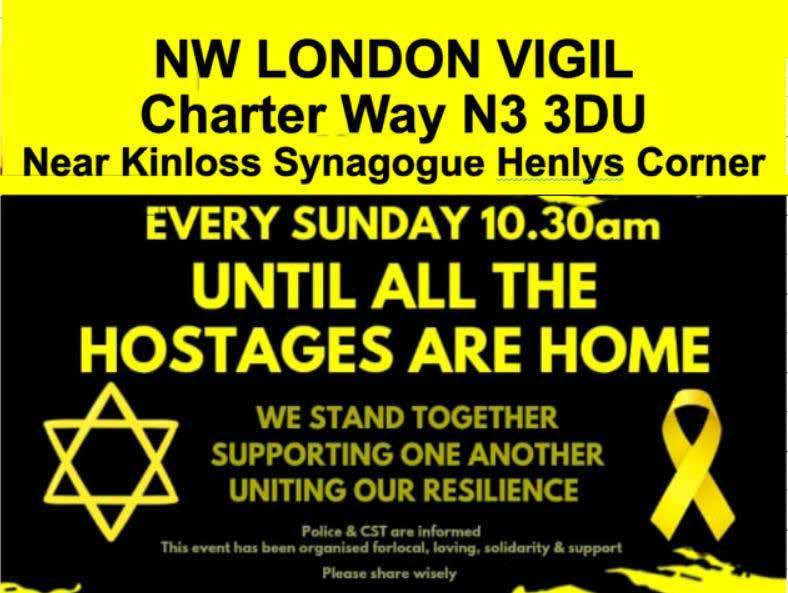


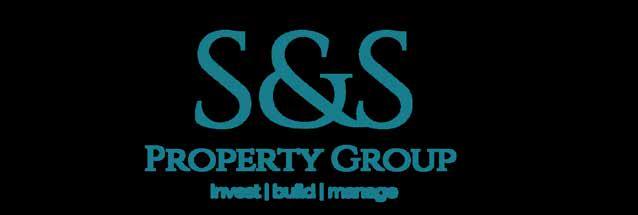






Starting from 2,055,000 nis
Rendering for illustration only

CONTACT: RAHM SOLNIK